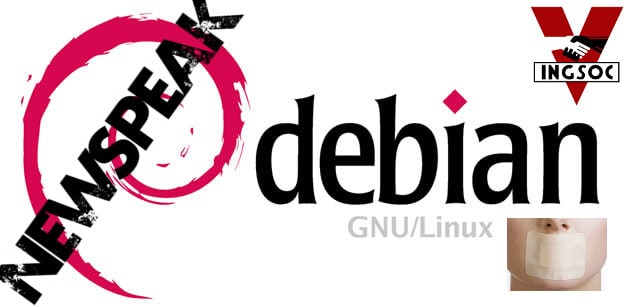
Much has been written around the internet about this geeky kernel maintainer Sarah Sharp who
left kernel development. I have now spent two hours reading through
lkml posts, and want to summarize a few mails from the long thread, since most of the usual news sites just rewrap the original blog of hers without adding any background.

The
whole thread evolved out
call for stable kernel review by Greg Kroah-Hartman where he complained about too many patches that are not actually in rc1 before going into stable:
<rant>
I'm sitting on top of over 170 more patches that have been marked for
the stable releases right now that are not included in this set of
releases. The fact that there are this many patches for stable stuff
that are waiting to be merged through the main -rc1 merge window cycle
is worrying to me.
[...] |
from where it developed into a
typical Linus rant on people flagging crap for stable, followed by
some jokes:
On Fri, Jul 12, 2013 at 8:47 AM, Steven Rostedt <rostedt@goodmis.org> wrote:
> I tend to hold things off after -rc4 because you scare me more than Greg
> does ;-)
Have you guys *seen* Greg? The guy is a freakish giant. He *should*
scare you. He might squish you without ever even noticing.
Linus |
and Ingo Molnar
giving advice to Greg KH:
So Greg, if you want it all to change, create some _real_ threat: be frank
with contributors and sometimes swear a bit. That will cut your mailqueue
in half, promise! |
with Greg KH taking a funny position in
answering:
Ok, I'll channel my "inner Linus" and take a cue from my kids and start
swearing more. |
Up to now a pretty decent and normal thread with some jokes and poking, nobody minded, and reading through it I had a good time. The thread continues with a discussion on requirements what to submit to stable, and some side threads on particular commits.
And then, out of the blue, Social Justice Warrior (SJW) Sarah Sharp pops in with a
very important contribution:
Seriously, guys? Is this what we need in order to get improve -stable?
Linus Torvalds is advocating for physical intimidation and violence.
Ingo Molnar and Linus are advocating for verbal abuse.
Not *fucking* cool. Violence, whether it be physical intimidation,
verbal threats or verbal abuse is not acceptable. Keep it professional
on the mailing lists.
Let's discuss this at Kernel Summit where we can at least yell at each
other in person. Yeah, just try yelling at me about this. I'll roar
right back, louder, for all the people who lose their voice when they
get yelled at by top maintainers. I won't be the nice girl anymore. |
Onto which Linus
answers in a great way:
That's the spirit.
Greg has taught you well. You have controlled your fear. Now, release
your anger. Only your hatred can destroy me.
Come to the dark side, Sarah. We have cookies. |
On goes Sarah, gearing up in her SJW mode and
starting to rant:
However, I am serious about this. Linus, you're one of the worst
offenders when it comes to verbally abusing people and publicly tearing
their emotions apart.
http://marc.info/?l=linux-kernel&m=135628421403144&w=2
http://marc.info/?l=linux-acpi&m=136157944603147&w=2
I'm not going to put up with that shit any more. |
Linus himself made
clear what he thinks of her:
Trust me, there's a really easy way for me to curse at people: if you
are a maintainer, and you make excuses for your bugs rather than
trying to fix them, I will curse at *YOU*.
Because then the problem really is you.
[...] |
It is easy to verify what Linus said, by reading the above two links and the answers of the maintainers, both agreed that it was their failure and were sorry. (
Mauro s answer,
Rafael s answer) It is just the geeky SJW that was not even attacked (who would dare to attack a woman nowadays?).
The overall reaction to her by the maintainers can be exemplified by
Thomas Gleixner s post:
Just for the record. I got grilled by Linus several times over the
last years and I can't remember a single instance where it was
unjustified. |
What follows is a nearly endless discussion with Sarah meandering around, changing permanently her opinion what is acceptable. Linus
tried to explain to her in simple words, without success, she continues to rant around. Here
arguments are so weak I had nothing but good laugh:
> Sarah, that's a pretty potent argument by Linus, that "acting
> professionally" risks replacing a raw but honest culture with a
> polished but dishonest culture - which is harmful to developing
> good technology.
>
> That's a valid concern. What's your reply to that argument?
I don't feel the need to comment, because I feel it's a straw man
argument. I feel that way because I disagree with the definition of
professionalism that people have been pushing.
To me, being "professional" means treating each other with respect. I
can show emotion, express displeasure, be direct, and still show respect
for my fellow developers.
For example, I find the following statement to be both direct and
respectful, because it's criticizing code, not the person:
"This code is SHIT! It adds new warnings and it's marked for stable
when it's clearly *crap code* that's not a bug fix. I'm going to revert
this merge, and I expect a fix from you IMMEDIATELY."
The following statement is not respectful, because it targets the
person:
"Seriously, Maintainer. Why are you pushing this kind of *crap* code to
me again? Why the hell did you mark it for stable when it's clearly
not a bug fix? Did you even try to f*cking compile this?" |
Fortunately, she was immediately corrected and Ingo Molnar wrote an
excellent refutation (starting another funny thread) of all her emails, statements, accusations (all of the email is a good read):
_That_ is why it might look to you as if the person was
attacked, because indeed the actions of the top level maintainer were
wrong and are criticised.
... and now you want to 'shut down' the discussion. With all due respect,
you started it, you have put out various heavy accusations here and elsewhere,
so you might as well take responsibility for it and let the discussion be
brought to a conclusion, wherever that may take us, compared to your initial view? |
(He
retracted that last statement, though I don t see a reason for it)
Last but not least, let us return to her blog post, where she states herself that:
FYI, comments will be moderated by someone other than me. As this is my blog, not a
government entity, I have the right to replace any comment I feel like with
fart fart fart fart . |
and she made lots of use of it, I counted at least 10 instances. She seems to remove or fart fart fart any comment that is not in line with her opinion. Further evidence is provided by
this post on lkml.
Everyone is free to have his own opinion (sorry, his/her), and I am free to form my own opinion on Sarah Sharp by just simply reading the facts. I am more than happy that one more SJW has left Linux development, as the proliferation of cleaning of speech from any personality has taken too far a grip.
Coming to my home-base in Debian, unfortunately there is no one in the position and the state of mind of Linus, so we are suffering the same stupidities imposed by social justice worriers and some brainless feminists (no, don t get me wrong, these are two independent attributes. I do NOT state that feminism is brainless) that Linus and the maintainer crew was able to fend of this time.
I finish with my favorite post from that thread, by Steven Rosted (from whom I also stole the above image!):
On Tue, 2013-07-16 at 18:37 -0700, Linus Torvalds wrote:
> Emotions aren't bad. Quite the reverse.
Spock and Dr. Sheldon Cooper strongly disagree. |
(after a bike ride) The last point by Linus is what I criticize most on Debian nowdays, it has become a sterilized over-governed entity, where most fun is gone. Making fun is practically forbidden, since there is the slight chance that some minority somewhere on this planet might feel hurt, and by this we are breaking the CoC. Emotions are restricted to the Happy happy how nice we are and how good we are level of US and also Japanese self-reenforcement society.
Post Post Scriptum I just read Sarah Sharp s post on
What makes a good community? , and without giving a full account or review, I am just pi**ed by the usage of the word microaggressions I can only recommend everyone to read
this article and
this article to get a feeling how bs the idea of microaggressions has taken over academia and obviously not only academia.
Post3 Scriptum I am happy to see
Lars Wirzenius,
Gunnar Wolf, and
Mart n Ferrari opposing my view. I agree with them that my comments concerning Debian are not mainstream in Debian something that is not very surprising, though, and I think it is great that they have fun in Debian, like many other contributors.
Post4 Scriptum Although nobody will read this, here is a
great response from a female developer:
[...] To Linus: You're a hero to many of us. Don't change. Please. You DO
NOT need to take time away from doing code to grow a pair of breasts
and judge people's emotional states: [...] |
Nothing to add here!
 At Debconf15 I gave a talk on topic of having backups be a default
service on Debian machines. In that talk, I proposed that we create
infrastructure to be included in a default Debian install to manage
backups.
I still think this is a good idea, but over the past several months,
I've had nearly no time at all to actually do this.
I'm afraid I have to say now that I won't be able to work on this in
time for the stretch release. I would be very happy for others to do
that, however.
The Debian wiki page https://wiki.debian.org/Backup acts as a
central point of information for this. If you're interested in working
on this, you can just do it.
At Debconf15 I gave a talk on topic of having backups be a default
service on Debian machines. In that talk, I proposed that we create
infrastructure to be included in a default Debian install to manage
backups.
I still think this is a good idea, but over the past several months,
I've had nearly no time at all to actually do this.
I'm afraid I have to say now that I won't be able to work on this in
time for the stretch release. I would be very happy for others to do
that, however.
The Debian wiki page https://wiki.debian.org/Backup acts as a
central point of information for this. If you're interested in working
on this, you can just do it.
 At the
At the  Now that the tsunami that followed my
Now that the tsunami that followed my  In particular do I want to answer to two blogs: Lars Wirzenius
In particular do I want to answer to two blogs: Lars Wirzenius  The
The